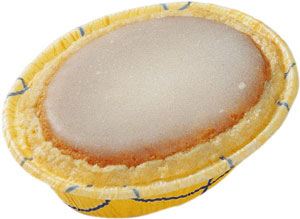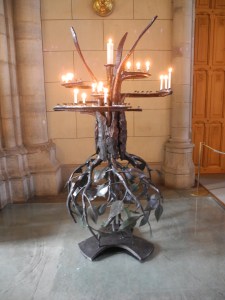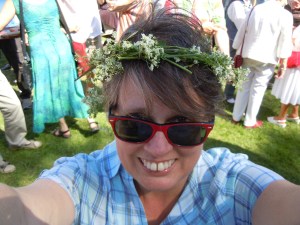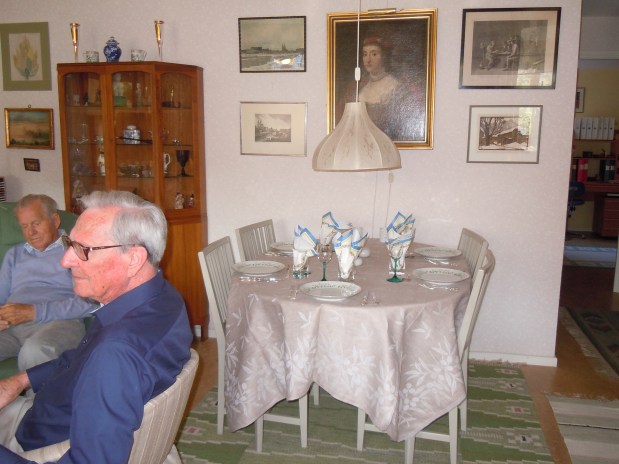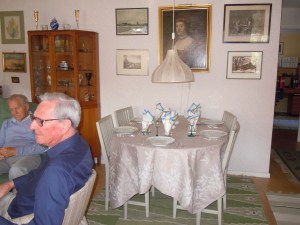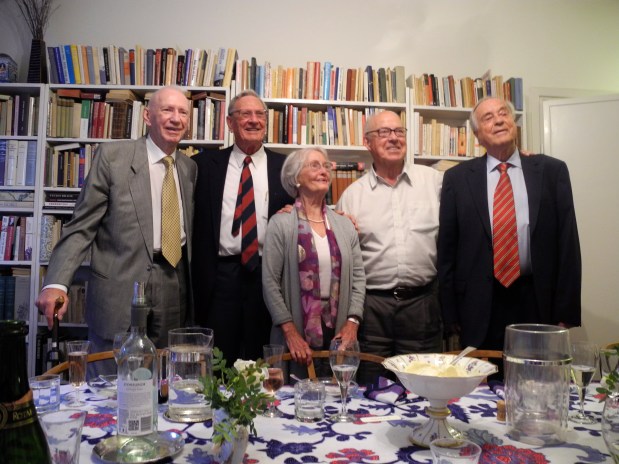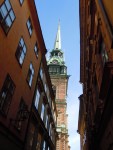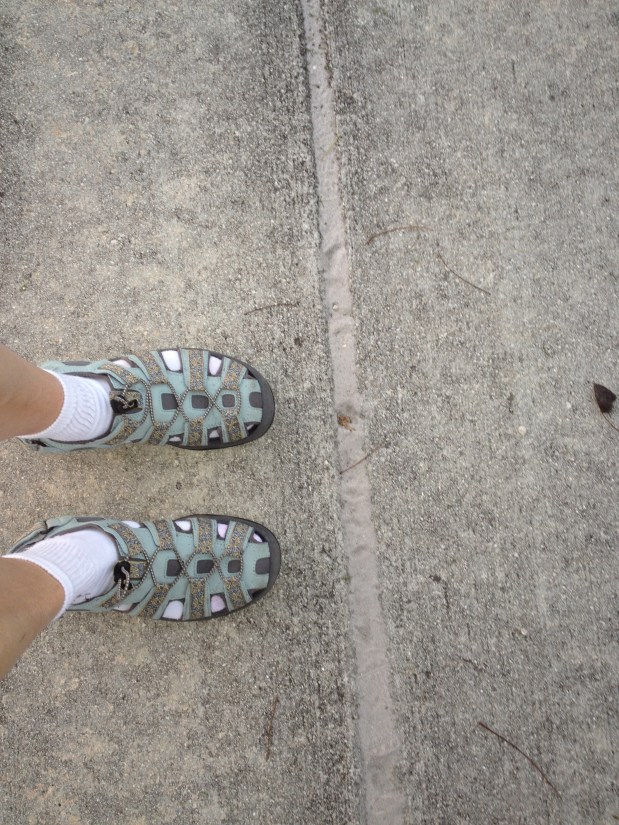Last night I crawled into my own bed after a long flight home. That felt good. I even managed to sleep until 5:30 this morning even though my body insists it is a lot later in the morning than that. I’m sitting with my regular copy of coffee and the silence of a house where I’m the only one awake. I’m glad to be back.
The last few days in Stockholm continued to unfold with a kind and gentle grace. The weather was terrible. This has been the coldest, wettest June on record in Sweden. On Monday, between rain and a mean wind, the temperature with wind chill was 38 degrees F. Even though that was disappointing, it also made the trip feel more real and connected to life as it is and not as we wish it were. My dad and I sat and read in the hotel, we talked and I made little forays out to explore and do a bit of shopping. Even in the rain, Stockholm is a beautiful city.
On Monday evening, we went on the final really big adventure of our trip—we got on a ferry that goes out into the Stockholm archipelago. The archipelago has over 10,000 islands; this ferry carries people to and from their summer homes scattered on the larger islands. You can buy a round-trip ticket and the ferry has a nice restaurant. There’s something especially lovely and exciting about dining in a formal restaurant on board ship, what with the crisp white napkins folded just so and the old and gracious silver, china and crystal. The round trip takes 4 ½ hours and with the long summer twilight, we had a beautiful view. When we came on board at 5:00 PM, it was still raining and grey but about 1 ½ later, the sun started breaking through making everything look magical. Everywhere I looked, my eyes were happy.
There was no speed involved in this part of the journey and there’s something about sitting looking out as you slip through the water that invites story telling. It turns out that one of the happiest times ever in my father’s life took place in 1937, when his parents brought him from Colombia to spend a summer in a cottage they rented in Skärgården, as the archipelago is called. Starting from that summer, he went on to tell me about the next 5 years in his life, as WWII loomed ahead, he was sent to Sweden alone and then in 1941, when he was 13, came home to lunch on Tuesday, February 3rd. The people he was living with, Tant Jennie and Farbor Oscar (Uncle and Aunt in Love, if you will), were waiting for him and handed him a cable. The cable advised that his mother had died in the very early hours that day in Colombia. I don’t think my dad has told many people that story and it was as raw and painful for him on Monday evening as it had been 72 years ago.
We ran into a whole lot of complications trying to do the genealogy research about my grandmother Rosa and finally gave up for now. But it was so much more important and meaningful to sit with this man who is now 85 years old and whom I am only now really getting to know. Again, I was reminded how the holy is ordinary and the ordinary holy, if we will accept, as W.H. Auden insists, that “Time is our choice of How to love and Why”.
We spent Tuesday first with Maj, our dear friend whom we’d seen earlier in Norttälje at lunch and then packing. In the evening, we went out to dinner with a couple, Mona and Frederick, who lived in Colombia for several years in the 70’s, when Frederick was an executive with the Colombian subsidiary of L.M. Ericsson. I got to hear about their children who were beautiful babies when they lived in Colombia and now have impressive lives as adults in Sweden and the USA. We told old stories about Cali in Swedish, talked about my godfather who is a legendary figure both in Colombia and in Sweden because of his work in ornithology, about the very spirited gatherings my parents used to host in those years. It gave us another way to celebrate my mom, remembering her unforgettable parties. In a moment of truly poetic goodness, the strands of life in Colombia, Sweden and the USA all wove together again in a way I could neither have anticipated nor prepared for. And then, way too early in the morning yesterday, I was saying good bye to my dad and taking the high speed train to Arlanda Airport to begin the long journey home.






